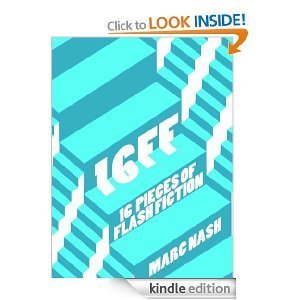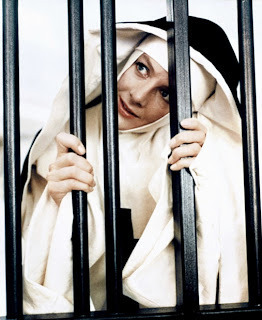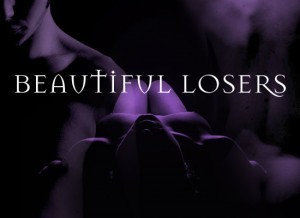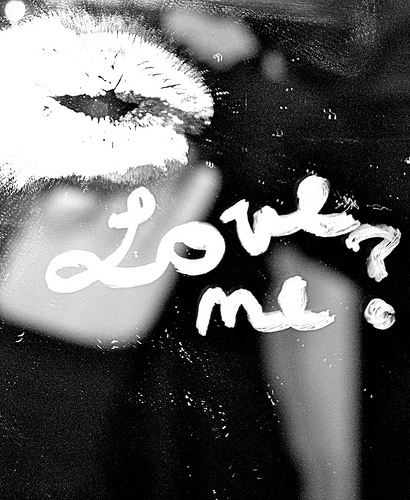Remittance Girl's Blog, page 31
July 26, 2012
Tales of the Mumbai Coven – Interview in Mumbai Boss #notsosparkly #vampires #mumbaiboss
 I love it when things happen completely out of the blue. About a week ago, I got a delightful request for an interview from a writer at the Mumbai Boss e-zine. An English language online journal based out of Mumbai, India.
I love it when things happen completely out of the blue. About a week ago, I got a delightful request for an interview from a writer at the Mumbai Boss e-zine. An English language online journal based out of Mumbai, India.
I’m not sure how she found my stories, but I’m so glad she did! And it was interesting to be asked to think about why I situated my cast of fanged characters in Mumbai. I’m so glad I did, now. It gives me a great excuse to go back, do some more research and write a few more stories to add to the collection.
If you’d like to read the stories in the series so far, click here: Tales of the Mumbai Coven.
The interview on Mumbai Boss is here: Love Bites


July 16, 2012
Other Voices, Other Genres: Marc Nash
 In my continuing adventure to thrust suspect and dangerous people upon you, I’d like to introduce you to Marc Nash. He has a very challenging view of how to be a writer. I’d like to be more like him.
In my continuing adventure to thrust suspect and dangerous people upon you, I’d like to introduce you to Marc Nash. He has a very challenging view of how to be a writer. I’d like to be more like him.
When did you start writing?
Apocrypha has it that I scrawled the word ‘help’ in amniotic fluid on the membrane encasing me. But the evidence was washed away with my birth. And while I desisted from scrawling ‘help’ in my father’s blood adorning the kitchen lino after a reasonably serious, if inept attempt at suicide (saved by his anatomical ignorance and squeamishness) undertaken with an electric carving knife – I was charged with cleaning the floor before the charlady arrived and spread our toxic family secrets around – I have been penning fiction about suicide and death ever since. One of these tales is true. My mother still keeps the carving knife, wall mounted on a couple of pegs, like a big game hunter’s favourite elephant gun.
I had started writing crappy teenage angst lyrics about CND and mutually assured destruction, but shortly after the true one of the above two events, I started writing angry plays at college where I could get them staged. This was the only thing that kept me from dropping out. When I graduated I was desperate to write something creative after the dry academia and thought that playwriting seemed like a good pursuit to follow in order to avoid the rat race. It wasn’t. Not quite down in the sewers, but I was homeless and dossing on friends’ floors for most of the four years of my lunatic pursuit of the ridiculous profession of playwright; most of them just see it as a staging post until they get a proper writing job in film or TV. I was quite taken with shaping and carving the actors’ bodies up on stage. In the end I stopped writing dialogue entirely. That went down well in the world of drama, kitchen sink and all. I turned to writing novels when my twins arrived, since it meant I couldn’t hang out at theatre bars any more.
What does writing do for you?
1) Prevents me buying an illegal automatic firearm from a street dealer. Just as well really, I’m more of a crap and than crack shot
2) Pursuing an inexorable terrorist campaign against both ‘reality’ (a consensual construct which I fiercely abstain from) and its handmaiden ‘language’ which serves to prop and bolster in a manner most tyrannical. Language is slippery and elusive, particularly nouns. I don’t mind verbs so much, the ‘doing’ words. The act of drinking, be it lemonade to slake a thirst, alcohol to get intocxicated, poison to end one’s wretched life or ejaculate, all enact the same physical reflex of swallowing. It’s only the varying quality of the liquids that colours the nature of the act itself.
3) It lets me discover the lesser viewed parts of myself.Sole writing schtick aphorism from me – ALL WRITING IS AUTOBIOGRAPHICAL. It all emerges from your imagination, no-one else’s. Even if you use an anecdote someone else gave you, it still becomes part of your experience by the mere act of you committing it to your memory and then recalling it. I like to write characters as far as possibly removed from me and my daily life. That forces me to travel out to meet them through the writing and I reckon we meet somewhere around halfway.
4) Causes me a world of obsessive pain and sucks me into a vortex of introspection so that I often burn the kids’ supper. They’ve stopped even complaining about it now. They wish I made money to buy them unlimited electronic good.
5) The grim satisfaction of a job well done. Even if no one else agrees
Who do you write for? Who is your model reader?
Someone who won’t duck a challenge.
Someone who is prepared to question the world around them
Someone who refuses to indulge in literature as escape from their lives, but would rather use it to assist them to interrogate it instead
Someone who likes ideas and words
Someone a little jaded by the extant book market
Someone who might come back at me about my work and challenge me over it
If you had to point to five books that changed you significantly, what are they and how have they changed you?
I’d struggle for 5 to be honest. I write books that I might like to read but which I don’t think are out there in the market. I didn’t read as a kid, so my entry into the novel through Camus’ “L’Etranger” was pretty important to me I guess. A cool older cousin of mine suggested I track down the Cure’s song “Killing An Arab” and then read the book, both of which I dutifully did and scored some credibility points at school. But the book blew me away, well it would do, it was about death, life and meaningless. Kafka and Beckett are huge faves of mine, probably for their absurdist takes on the human hive, though my writing style is about a million miles removed from both of these archly spare stylists. My fourth would be a book I haven’t even read. One of my favourite bands were Swans whose lead singer Michael Gira also wrote short stories. I knew his lyrics, pared, stripped down expressions of brute power of body on body. I saw a short story of his in a book called “Tape Delay” (music -lit crossover, who knew? Duh!) and became desperate to get his chapbook but never did manage to. Now it’s on Amazon for about $70 and E-Bay for about $45. I’m tempted…
Who is your favorite fictional character and why?
Saul Karoo in Steve Tesich’s “Karoo”. He’s just so funny and offhandedly bitter. Sadly the author died before he could write another book. I quite like Meursault’s ‘meh’ attitude in “L’Etranger” that ultimately is the reason the State has to execute him. But I’m more about voice than character to be honest. To me character too often can just come down to some pop-Freudianism. I’m more interested in character being revealed through their use of language rather than their observations and reactions to things.I like characters to start from the inside and work themselves outwards, the reverse of the usual dripfeed. My charcaters tend to splurge all over you at the outset and slowly the reader gains the pwoer to rein them back in.
Are you more a plot driven or character driven writer?
Neither, see above. I’m more interested in the storytelling than their story. Why is this character telling you this particular story in this particular way and expect/demand you the reader to listen to it? I nearly always try and think about these questions and make them part of the book. For example, the narrator of my debut novel takes up residence at beach bars spinning tales in return for drinks. She does this because she’s exiled from home and has no visible means of support. Who is the person she’s telling her stories to in the book (for whom the reader is a proxy)? That is revealed by the end. Are any of her tales from her time at home believable at all? These are questions arising from the book, how reliable a narrator is she?
As to plots, I am simply uninterested in them. Real life doesn’t follow plots, though plenty of people make plots out of their lives. They turn them into fictions (see any misery memoir you care to mention). I’m more interested in people who are stuck and go round in circles making similar versions of the same mistakes, rater than those demonstarting a character arc of development and achieving redemption by the end. No one I know has ever achieved redemption in their life. Hence the plethora of self-help books…
What is your latest work? Where did the seed of the idea for the book come from?
A novella that I want to take the form of a How (Not) To Guide. Something pocket sized and with illustrations (majuscules in fact, like the old hand-scribed and illuminated books). It’s a book about growing up male now and in the previous generation, how utterly alien they are to one another and that includes a language gap that cannot be breached. It’s a manual of mal-parenting really. It’s also a commentary upon youth on youth crime and gangs and the unacceptable level of youth deaths by stabbing that people seem to shrug and accept but which I simply cannot. Part of its genesis comes from reflecting upon being a father to my twin boys and what maleness means for them and meant for me when I was their age.
Do you have some plans for the next one?
Ah, the great unsellable project you mean? My book on language itself. A schizophrenic who believes he can silence the voices if he starves them of words and sets about slashing words out of the dictionary, based on their overlapping of function, partly brought about by the schizoid origins of English itself, emerging from both Norman French and Anglo-Saxon – and the implicit power relations built into our language through those origins.
You can purchase Mark’s latest book 16FF here. You can follow him on twitter through @21stCscribe and his site is Sulci Collective.


I Want Love To…
July 13, 2012
Why Fifty Shades of Grey Matters: On the social consumption of sin as spectacle & its exploitation in the marketplace
 I've run across a number of erotica writers who've said they haven't and won't be reading Fifty Shades of Grey. In all honestly, this blows my mind. You can try to dismiss it, as many critics have, by calling it 'mommy porn'. You can deplore its writing style - lord knows, even die-hard fans don't attempt to defend the poor quality of the prose. But you can't ignore the fact that it has now sold over 20 Million copies in the US. In the UK it became the fastest selling novel of all time.
I've run across a number of erotica writers who've said they haven't and won't be reading Fifty Shades of Grey. In all honestly, this blows my mind. You can try to dismiss it, as many critics have, by calling it 'mommy porn'. You can deplore its writing style - lord knows, even die-hard fans don't attempt to defend the poor quality of the prose. But you can't ignore the fact that it has now sold over 20 Million copies in the US. In the UK it became the fastest selling novel of all time.As writers in this genre, it is important for us to interrogate its success and to try and understand what it means for the genre, for levels of explicitness in mainstream fiction, and for the way publishers are going to inevitably behave in the light of it.
I have a theory.
Less than three years ago, some very prominent writers and agents in the publishing world told me, flatly, that there was no market erotica. It was unsaleable. It was a niche product that held little interest for them and would tick along at its own obscure pace. You can put sex in your murder mystery, or your sci-fi novel, or your romance, they said. But a straight-up erotic novel, with sexual desire as a central theme, was simply not saleable.
But they were wrong. I think that the rising levels of explicit sexuality in film, television, and the ubiquity of porn on the web meant that there was a large mainstream audience whose tolerance for and interest in fiction with heavy erotic content had been growing for years. And it is a comment on just how out of touch mainstream publishers have been with their market that, with a very few exceptions that were associated with individual authors, they did not cotton onto it. Many, many well written erotic novels, with good character development and credible plots, came across their desks and they slush-piled them.
Along comes Fifty Shades of Grey. A novel that started off as Twilight fanfic, and gained a considerable devoted audience within that context. Its author, E.L. James, is a retired television executive who had some advantages over most erotica writers. She knew a lot about the media landscape and the concept of 'audience'. She understood her own work as 'marketable property'. My guess is that she had a keen sense of how to pitch the work just right to convince publishers that they should reconsider their ambivalence toward erotica. But mostly, I think she had an instinctive understanding of how a mainstream public needed to find engagement with kinky sex, while providing them with a moral escape clause.
Fifty Shades of Grey does an interesting dance with the explicit. It revels in the details of the taboo of BDSM while seeming to condemn it. Like the torrid pseudo-journalistic pieces written about Tiger William's illicit affair, it whispers to a rather creepy corner of the mainstream psyche which has a propensity to enjoy the titillation inherent in a sin while, at the same time, censuring Mr. Williams for being such a faithless bastard.
And many, many readers love this. They can masturbate furiously to the scenes played out in the Red Room of Pain, while waiting for the heroine to cure Mr. Grey of his perversions.
I am reminded of the masses who enjoyed the spectacle of the Salem Witch Trials or denunciations of heretics during the Spanish Inquisition.
"She consorted lewdly with the Devil!" the inquisitor proclaims, partly for the judges but loudly enough to entertain the masses. He lovingly details the proof of her perfidy. The women gasp and feel a quiver between their thighs right before they all scream, "Burn the witch!" If you've never seen Ken Russell's "The Witches", based on the historical events of the trials of the witches in Loudun, France, in 1634, you should. He understood and then illustrated the eroticism and hypocrisy that plays out in these sorts of public discourse on morality and sin with an insight that few others have.
I don't think a large portion of mainstream society has evolved much since then. And for erotica writers, who usually situate themselves firmly in the sex-positive camp, this is very hard to comprehend. We write novels about how erotic experience and the exploration of new sexual territories helps us grow as individuals. For us, sex in a doorway. Very often our themes are about revelation, completion, redemption through experience. Not through shame or rejection or closing down our sexual options.
From the point of view of mainstream publishers, Fifty Shades of Grey is simply a very successful product. In the last year, in the editorial boardrooms in London and New York, large publishers have spent time analyzing the success of the novel and figuring out how they can get on the bandwagon. They may not be risk-takers when it comes to new literary product anymore, but they're damn good post-game quarterbackers. The moral dynamics that underlie FSOG will not have escaped them, nor will the poor quality of the writing.
If you had hoped to produce a 'better written Fifty Shades': "Thirty Shades of Grammar" or "Eighty Shades of Character Development" or "Twenty-Six Shades of Plot", I don't think your efforts are going to be appreciated. Publishers have proof that the vast majority of people who have bought, read and enjoyed the series simply don't care about the quality of the writing. In fact, its very hamfistedness may play a subtextual role in convincing the reader of Anastasia's innocence and her genuine desire to cure the perverted Mr. Grey.
Of course, in the over 40 million world-wide readers, some of them will wish for and seek out better written erotica. And there will be some who are emotionally and sexually honest enough to admit the BDSM in the novel was what drew them to it and felt unaccountably let down when the heroine finally succeeds in leading Mr. Grey into the vanilla light. It will not be a large percentage of them. And, consequently, there will be something upsurge in erotica sales for years to come.
But I don't believe it will be the explosion we are hoping for. I genuinely hope I'm wrong in this, but I don't think I am. Nonetheless, we may have gained a few more intrepid souls.
Proof / Test Readers Wanted
 If you have been reading me a while and have been with me through the evolution of my novel, Beautiful Losers, you may or may not be pleased to know that I have finished it and it is being submitted for publication.
If you have been reading me a while and have been with me through the evolution of my novel, Beautiful Losers, you may or may not be pleased to know that I have finished it and it is being submitted for publication.
However, I would like to ask if some of you patient readers would like to read the book in its entirety for free. This offer comes with some strings attached. You have to undertake not to share the work with anyone, and to note any errors – spelling, typing, or grammatical – that you come across. Finally, you need to be willing to give you your impressions of how the work as a whole works for you.
Before you undertake to do this, please be warned that Beautiful Losers is sexually explicit in the extreme and portrays non-normative sexual acts. Is NOT erotic romance. It does not have an happily ever after, or even happily for now ending. I hope what I have written constitutes a meaningful ending. That’s all that I can say about it. It’s approximately 67,000 words long. Short novel size.
Oh, and I need your feedback pretty quick.
If you’re still willing to take on this daunting and onerous mission, just drop me a comment below, with the email address (in the appropriate box, so it’s not public) where you’d like to receive a pdf copy of the draft book. The first 10 commenters will get a copy.
***** Please note, I have all the readers I can feasibly accommodate feedback from now****


July 12, 2012
Love Me?

Love me? by dprotz
Some days,
I think I lost you
in the sludge of time
I blame the years of erosion
that wore the edge
off desire.
Others,
I never found
the right combination
of clever words to unlock
your cast-iron heart;
I blame the limits
of language.
We find curious places
to put our failures:
in the crannies of
the impossible
and the
mundane.
But in moments of clarity,
I know you were
the perfect mirror,
of all I wanted
reflected,
absorbing
no light.


July 10, 2012
Other Voices, Other Genres: Heikki Hietala
Continuing on with my drive to introduce you to new voices writing in genres other than erotic fiction, it’s my pleasure to introduce Heikki Hietala, a Finnish writer of literary and historical fiction.
I’ve always liked writing, but it was in April 1996 that I got the urge to write something bigger than a school essay. At the time I did not know what it would turn out to be, but I started a project (didn’t call it a book until years later) and worked on it intermittently for years. It took me ten years of research and writing in spare moments, but the project finally became a historical fiction novel called “Tulagi Hotel”. It was published in 2010 and reissued in 2011. My short story production began in 2008, out of the blue again, and I have since that finished about 40 stories and published a collection, “Filtered Light and Other Stories”, in 2012.
What does writing do for you?
It helps me unwind, and as I am one of the old skool storytellers, it lets me tell stories that form in my head without asking (sometimes without my consent even). Mostly my topics pop up in the back of the neck just before I go to bed, and then I can work on them in the morning traffic and other times when I have a few moments. It has brought me into contact with dozens of interesting people around the globe, such as yourself, and I’ve made many friends through writing.
Who do you write for? Who is your model reader?
I write for someone like myself. I like my books well researched, well written, and with a captivating storyline. While I am not saying I manage to do that myself, I’ll say that Nevil Shute, Ernest Hemingway, and Arthur C. Clarke have influenced me very much, as has Robert Harris. His books, “Fatherland” and “Enigma” in the forefront, are to me the epitome of research, plot, and pace.
If you had to point to five books that changed you significantly, what are they and how have they changed you?
The first is “Sinuhe the Egyptian” by a Finnish author, Mika Waltari. He wrote a parable of World War II in 1945, setting it in ancient Egypt, and managed to produce a book of great stature and acute observations on the futility of aspiring to power. Then there’s Stanislaw Lem’s immortal book of cyber fairytales, “The Cyberiad”. From him I have learned that you can write a story of any idea, no matter how silly, as long as you work on the craft and hone it to perfection. Martin Middlebrook’s nonfiction books on the air war of WWII set a standard of research for me that I will forever try to meet. My short story work is influenced by Roald Dahl (“Over to You”) and Robert Heinlein, whose “October Country” remains one of my favorite books that I read again and again.
Who is your favorite fictional character and why?
That would have to be Trurl in “The Cyberiad”. He, and his colleague Klapaucius, are inventors who travel the Universe and invent whatever is needed. Usually they get hired by kings and princes who want to enhance their own stature. Trurl is the more positive of the two, and he always tries to help whoever asks for his assistance, whereas Klapaucius is a cynical person. Still, together they create a magical world with such wonder that the reader is left breathless many times. Few fictional characters are this strong.
Are you more a plot driven or character driven writer?
That depends fully on the work at hand. I have some short stories where the plot runs the show, but in my novel, everything hinges on the personal growth and development of the main character, Jack McGuire. I seldom can tell beforehand which way it will go, by the way. I have to start the story, and then I can see after the first few paragraphs, what will happen this time. I love the way some authors can invent plots that keep you on the edge of your seat, and then again, how authors like John Updike can have such utterly believable characters as those in the Rabbit books. It remains to be seen how people see my work, but I hope they see I aimed at some sort of balance between the two, most of the time.
What is your latest work? Where did the seed of the idea for the book come from?
My latest work is a 18 story collection of short fiction, “Filtered Light and Other Stories”. It has nine speculative fiction stories, and the remaining eight are memoir-based, flash fiction (below 500 words), humor, and real life. I’ve always liked speculative fiction, not of the type where the ghost appears ex machine and vampires meet zombies, but rather more delicate stories. The need to write speculatively arose from my first short story, “The Summerhouse”, where the ghost of a dead man comes to visit his beloved summer cottage one last time. Again, this is not one that aims to scare, but rather to raise thoughts on what really happens at the moment of passing beyond time and space. This is a recurring theme with me.
Do you have some plans for the next one?
I am working on two books. One is based on the idea of a 3D model of a hospital that becomes haunted (I am not sure if that is a Young Adult book or a mainstream horror book), and the other is a more introspective book, based on my experiences when I was coming home from my book launch in Londion, 2010, and had to take the train to Finland instead of flying because of the Icelandic ash cloud. Both progress slowly, as I still have some 20 short stories in the works, and I hope to get another volume of my short stuff out in maybe a year. I am also a very sporadic writer, much due to my work as a University lecturer. There simply is not time to keep a steady output. Luckily my publisher, Diane Nelson of PfoxChase, is very understanding.
Heikki’s blog is here. His novel, Tulagi Hotel is available here. You can follow him on twitter


July 7, 2012
Evil Ginger Cake

I’m a bit busy editing at the moment, so I thought I’d post a recipe instead.
To say that this is probably umlike any cake you’ve ever tasted before is as much of a warning as it is a boast. More spicy than sweet, it’s a quintessentially adult dessert. Children are likely to hate it. But they don’t need it. They have their youth. And then there’s small issue of the puddle of alcohol it sits in.
Ingredients
½ Cup of unsalted butter at room temperature
½ Cup brown sugar
½ cup of black strap molasses (unsulphured)
Zest of 1 large or 2 small limes
2″ piece of fresh ginger, peeled and grated
¼ cup of toasted chopped almonds
2 eggs at room temperature
2 tsp ground ginger
2 tsp ground cinnamon
1/8 tsp ground cloves
1 tsp baking soda
¼ tsp salt
2 cups of all purpose flour
1 cup of milk
Preparation
Preheat oven to 350 F or 180 C. Grease or spray a 9″ cake tin or 2 loaf tins and line with baking paper.
Using a mixer or a whisk, cream the butter and brown sugar together until light and fluffy. Add eggs one at a time, beating as you go. Then add molasses, lime zest, grated ginger and chopped almonds until all is well incorporated.
In a separate bowl, combine all spices, baking soda, salt and flour and whisk to ensure even distribution.
Begin to add the dry mixture into the wet one in stages: a third of the flour mixture, then a third of the milk, then flour, then milk… alternating until all the ingredients are blended. However, do not over-mix as this will make the cake heavier and stodgy.
Pour the batter into pans and bake for about 40 minutes or until a inserted toothpick comes out clean. Allow the cake to cool on a rack for 1 hour before you attempt to cut it.
Serving
Serve in a bowl, in a puddle of good dark rum, and top with either crème anglaise, whipped cream or ice cream. I know that proper cooks would say you should heat up the rum to burn off the alcohol, but I like the rough hit of it encountered raw.
You could serve this as a cutting cake, for tea. But I would suggest you glaze it with a simple lemon drizzle icing if you’re going to serve it that way. If you’d like the recipe for that, let me know and I’ll post it.


July 2, 2012
Other Voices, Other Genres: Moriah Jovan
This summer I have a lot on my plate, so I decided it would be a good time to introduce you to some fellow writers I admire. My aim is to wander a little further afield and encourage you to make the acquaintance of writers in other genres: romance, sci-fi, horror, detective fiction, non-fiction.
In this first installment of the series Other Voices, Other Genres, please meet Moriah Jovan. Like all the writers in this series, I let her speak for herself.
I’ve been writing as long as I can remember, but not necessarily with pen and paper. I’m a bit of a night owl, but when you’re a child with some ADD going on and your bedtime is way too early, boredom sets in quick once the lights go out. So I would create stories in my head to put myself to sleep. Then there was church: bored. Then there were long car rides: bored. After a while, it was kind of a conditioned reflex. Also, I had an imaginary friend named Baby and I would talk to it ALL the time (I never did find out if it was a boy or a girl.)
What does writing do for you?
I am a firm adherent to the make-it-till-you-fake-it school of exuding confidence, which is to say, I don’t have much on a day-to-day basis because I’m constantly striving for more. I’m never happy with where I am in my life and I’m beginning to suspect that even if I reach my goals, I still won’t be happy.
Occasionally, my characters have, more or less, some character trait I feel I either lack or am not as well-developed in as I’d like to be. I find writing a character with a trait I’m trying to develop or perfect (provided it fits that character) serves as a bit of a roadmap.
Other than that, my life is utterly boring, and I try to keep it that way. That said, I’m a high-maintenance wife and mother who doesn’t like real-life drama, but pretend drama? I can do that. I CRAVE that. As long as I can write 100-proof angst, close my file, and the biggest drama in my house is that my 6-1/2-year-old son got into YET ANOTHER thing he wasn’t supposed to, I’m good with that. Bring on the angst.
Who do you write for? Who is your model reader?
I write for me. I write the kinds of books I feel have been missing from genre romance for a long, long time. Let’s take the old-time bodice rippers from the 70s and 80s, for example. Let’s put the “forced seduction aka rape” issue aside for a moment. The heroines in those were adventurous. They might or might not be able to kick ass, but they were able to rise above their circumstances to get what they wanted. Some of them were real bitches. A few of them had more than one lover. They went on grand adventures and accomplished feats of derring-do. Some of them did whatever they had to do to survive (sleep with somebody else than the hero, say), but sucked it up and didn’t fuss over how virtuous they might or might not be, or how ruined in society they might or might not be. They went everywhere and weren’t confined to England. They didn’t have to be likable or relatable or a cipher for the reader. They were women I would have liked to have had as mentors. You know, real Women Who Run With the Wolves. I haven’t found these women in romance in years.
My model reader is anyone who has the willingness to take on a doorstopper novel and understand that while s/he might not agree with the characters’ beliefs or choices, that those things inform their motivations, and are willing to accept them on that basis.
If you had to point to five books that changed you significantly, what are they?
the Little House on the Prairie collection (all of them)
Shanna by Kathleen Woodiwiss
Atlas Shrugged (heh) by Ayn Rand
A Man in Full by Tom Wolfe
The Gate to Women’s Country by Sheri S Tepper
Who is your favorite fictional character and why?
I don’t think I could point to one. Those change with my mood or the day or what I need to focus on improving in my life. It’s like when my kids ask me my favorite color, they ask me what it is TODAY.
Laura Ingalls Wilder isn’t exactly fictional, but if I had to choose, she’d be it.
Are you more a plot driven or character driven writer?
My plots are really complex, but I’m a character-driven writer. I like to watch people. In fact, I wrote about it here: http://moriahjovan.com/mojo/people-watching
I like to ask them questions. I like to dig into their souls and find out what makes them tick. For somebody who LOVES to talk about herself a lot, I can pull an AMAZING amount of information out of people and they never notice.
What is your latest work? Where did the seed of the idea for the book come from?
My latest is DUNHAM, the fourth novel in a five-book series, out next year BUT! I’m serializing the unedited work in progress here: http://www.theproviso.com/dunham/ starting July 4, 2012.
It is the story of the ancestors of the people in the first three books. It’s a swashbuckler set during the American Revolutionary War with, you guessed it, a kick-ass heroine. She’s a whimsical privateer captain working for the Americans until something better comes along. The hero is a British earl with a chip on his shoulder, a need for revenge, and once he’s gotten that, a desperate yearning for some good farmland on the Ohio River. They meet, sparks fly, and spend the next year overcoming one obstacle after another to get–and stay–together.
The idea came to me while I was bored (natch) in a history class in 1991 when the professor told a story about how an American privateer fleet blew the British blockade at the mouth of the Chesapeake Bay. I’ve been sitting on it and rewriting it and re-rewriting it since then. I’ve got 170,000 words in the bag (I think it’ll end up at 225,000), but I’ve thrown out twice that many words in the intervening time. Things I liked in 1991 I didn’t anymore. Things I thought would work didn’t. Timelines had to be adjusted. But you know, in 1991, I didn’t like to kill my babies, throw out my words. I had some awesome lines in there I still think are awesome, but they aren’t appropriate. So it wasn’t until I could look at it and say, “This isn’t working and I’m not going to try to force it, so out you go” that I started actually getting some traction on the story. There are MAYBE 5,000 words there that are from the original sketch.
Do you have some plans for the next one?
The last book in the series is a post-apocalyptic novel, the granddaughter of one of the couples in the first three books of the series. It will mirror the historical, based on the fact that my privateer heroine (book 4) kept meticulous journals that fall into my post-apoc heroine (book 5)’s hands. She’s very young when the book starts (14) and is “married” at 16, and these journals from her many-greats-grandmother give her strength and guidance. The basic conflict is government-mandated polyandry, so my heroine is “married” to two men and she has to negotiate these relationships. It is not, however, a YA.
One last thought:
I don’t consider myself to be an erotica writer and, by comparison to current titles floating around, I’m not sure I write erotic romance, either. That said, my books are very explicit and, I’m told, quite hot. I’m like that one relative at Thanksgiving who mashes all their food together. You just can’t tell where one “thing” starts and another begins. But if someone in publishing said, “We’re going to make a new genre called SOAP OPERA,” that’s what mine would be!









